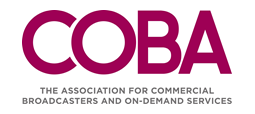Westminster Media Forum: COBA’s speech
COBA’s Executive Director, Adam Minns, spoke at the recent Westminster Media Forum seminar on investment in UK production, outlining the growing role of the multichannel sector in commissioning original UK TV content. See his speech below.
I would like to start with a question if I may. Who do you think invests the most in new ideas from independent producers? By new ideas, I mean British TV shows that are based on completely new concepts, as opposed to re-commissioning programmes for another series. Is it:
- The BBC
- The commercial Public Service Broadcasters, or
- The multichannel broadcasters – or non PSBs – that we represent at the Commercial Broadcasters Association
I’m going to come back to that – but you may have spotted a subtle hint in the last sentence.
The most important thing to say about investment by multichannel broadcasters is that it has gone up – and gone up strongly. According to Ofcom, investment in UK production by non PSBs increased by 43% in the last five years. That is exceptional growth and has been critical to sustaining levels of commissioning in recent years, particularly for the independent production sector. Pact estimates that multichannel now accounts for 22% of commissions from independent producers, up from 10% five years ago. As Ofcom’s states: “non PSBs were the only source of growth in new commissions” in the last five years.
Coupled with investment from independent producers, plus the new tax breaks, we believe investment in new UK production is healthy. Not only is there a good level of investment, but there is stronger ecology than perhaps ever before. By that I mean that there is greater plurality amongst commissioners, and a broader range of funding streams, than there has perhaps ever been.
So we wholeheartedly welcome recent statements by the Culture Secretary and Ofcom that the UK is benefiting from a strong “mixed ecology”. The PSBs are fundamental, but non PSBs have driven recent growth.
I also welcome Ofcom’s recent acknowledgement that much of this multichannel content meets public service objectives. Look at the brilliant children’s programmes from Nickelodeon and Nick Jr. One of their current animation shows, from a Belfast producer, is Lily’s Driftwood Bay. At its heart is a story about a little girl’s relationship with her father, which is unusual to see depicted. The animation has a unique, organic feel, using only real materials from beaches. The music is by contemporary British folk musicians, and the voices are by British talent like Stephen Fry, Jane Horrocks, and Peter Mullan, who called it: “gentle, with a good heart, and a great sense of collective responsibility.”
Or take Sky Arts. I used to be a film journalist before I realised that Cannes and LA had nothing on arguing over the small print in the Communications Act. For me, being able to watch the BAFTA screenwriter lectures on Sky Arts, in full, including the Q&A, is inspiring content, and inspired commissioning. That level of depth is also something that perhaps only a specialist arts channel could offer.
And that, for me, is the vital point. Non PSB broadcasters may not do everything that the PSBs do, but they do things that PSBs cannot do, or struggle to do:
- As I mentioned, multichannel broadcasters provide far greater plurality in commissioning than PSBs could ever do on their own.
- They also intensify creative competition, from commissioning right through to marketing. As Andy Harries put it: “Sky markets its shows in a cinematic style…it’s having a huge impact on the drama and comedy production community.”
- And they strengthen the UK production sector immeasurably by providing a greater range of funding streams than free-to-air ever could on its own. During the last advertising downturn, between 2009 and 2011, multichannel commissions from independent producers remained stable, while commercial PSB investment dropped significantly. That is partly through pay TV funding, and also because those broadcasters who are multi-national are particularly well placed to access funding from overseas markets. 35% of commissions from COBA members involve some level of investment from their own international divisions.
And, as I alluded to at the start, non PSBs punch well above their weight in terms of investing in new ideas. According to Pact, non PSBs invest 58% of their total commissions from independent producers on new ideas, as opposed to returning series. This equated to £221m in 2013. That was more than the BBC or the commercial PSBs and their portfolio channels.
I’m not suggesting there is anything wrong with returning series – they are very lucrative for all concerned and, by definition, popular with audiences. But new ideas are vital to sustaining the UK’s reputation for creativity. And of course you can’t have a returning series without a new idea in the first place.
So my overall point is that if you want a thriving content sector, if you want a UK that is a world leading television hub, we should embrace this mixed ecology where everyone plays a role. If I had one ask of policymakers, and indeed industry, it would be to focus on growing the sector as a whole, rather than transferring revenues – or IP ownership – from one part to another. Indeed, changes to copyright law currently being mooted by Brussels should unite us all. If rights holders, be they PSBs or non PSBs, producers or broadcasters, cannot effectively licence their IP, that could have fundamental consequences for the business models of pretty much everyone here today.
I’m sorry to end on such a gloomy note, but let’s not get caught re-arranging the Terms of Trade deck chairs while we steam full ahead into a copyright iceberg.
Thank you
